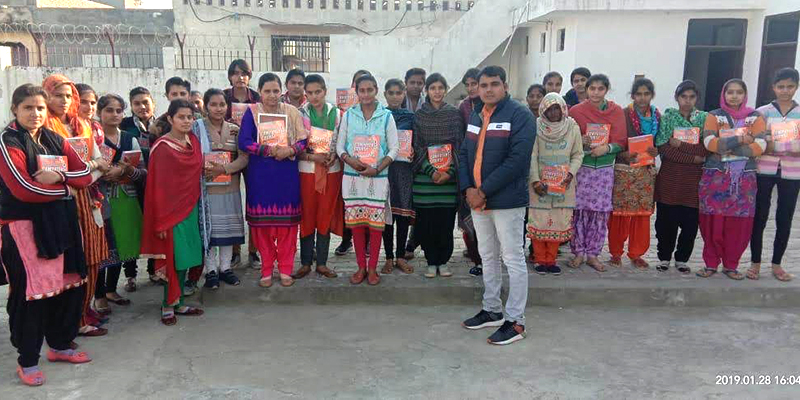On 1st January 2016, 17 sustainable development goals or SDGs were laid down by the United Nations to mobilize efforts by countries and organizations to end all forms of poverty, fight inequalities, and tackle climate change.
Built upon the success of the Millennium Development Goals (MDGs) mandated in 2000, the SDGs calls upon all nations regardless of size and wealth to identify strategies for economic growth. It also aims to identify solutions to address social needs such as education, health, job opportunities, gender inequalities, and poverty.
Hence, the 2030 Agenda for Sustainable Development is a call to action which sets a clear objective for individuals, institutions, and enterprises across the world.
On 26th April 2016, in line with the SDGs, we began our own project to perceive the socio-economic issues that plague several regions in India. It took us on an interactive journey with various stakeholders and we gathered first-hand accounts of people deprived of access to basic education, nutrition, and professional skills.
We observed the following problems in rural Haryana:
- A lot of women hardly have any access to technical and vocational education. Coupled with insufficient functional skills such as literacy and numeracy, the lack of professional knowledge discourages them from seeking decent opportunities in the job market. Many of them often take up low-paying jobs as temporary farm-hands, sweepers, and manual scavengers, which lead to further distress and economic marginalization.
- Several families cannot afford food items on a regular basis. Adults and children alike fall prey to malnutrition and diseases which prevent them from thinking beyond their daily needs and perceiving meaningful prospects.
- We took a dive into the problem of student retention across schools in rural Haryana and came across a reality that had not been addressed earlier. The reason behind the dramatic increase in drop-out volumes pertains to poor infrastructure across many schools. Moreover, many children lack knowledge of computers let alone a proper training which acts as an impediment to job opportunities.
Taking cognizance of the above facts, the Group came up with actionable measures to alleviate the situation. We decided to organize our initiatives and give them a name. This is how Kreate Welfare and Empowerment Foundation was born.
Aligning our objectives with four of the major Sustainable Development Goals or SDGs, we have been implementing various strategies to alleviate hunger, promote gender equality, impart quality education, and enable decent work and economic growth.
The following steps have been taken so far across Naultha, Urlana, and Mandi villages in Haryana:
- Free tailoring and stitching courses across various locations for women. In the training centers. students are trained by a qualified tailoring professional. The larger goal is to enhance the quality of life for these women by enhancing their skills and knowledge, and help them become economically self-sufficient.
- Various sessions such as grooming, etiquette training, and personality development workshops are conducted to boost the confidence of aspiring women.
- We are tackling the issue of malnutrition by distributing ration on a monthly basis to underprivileged families. We are in the process of ensuring that these families have access to sufficient nutrition all year round.
- We have initiated Internet services and basic facilities across government schools and also tended to the problem of power supply by providing electrical appliances.
- Our computer education centers in Urlana Village provide free sessions conducted by professional trainers. The objective is to bring computer education to rural areas, and enable access to skills that can enhance their prospects for employability.
Kreate Welfare and Empowerment Foundation has catered to 150 families, and over 250 women and aspiring students so far. Our interactions have revealed that many of them are eager to overcome socio-economic barriers and realize their dreams. Some had the vision but did not have the idea to implement, while others waited for guidance and the right opportunity. The students have shown great enthusiasm and quite a few have outdone themselves.
By continuing these projects, we hope to do our best to eliminate economic and gender-based disparities, and enable equal access to quality training and education. We are built upon the belief that economic empowerment is one of the key attributes towards self-actualization


